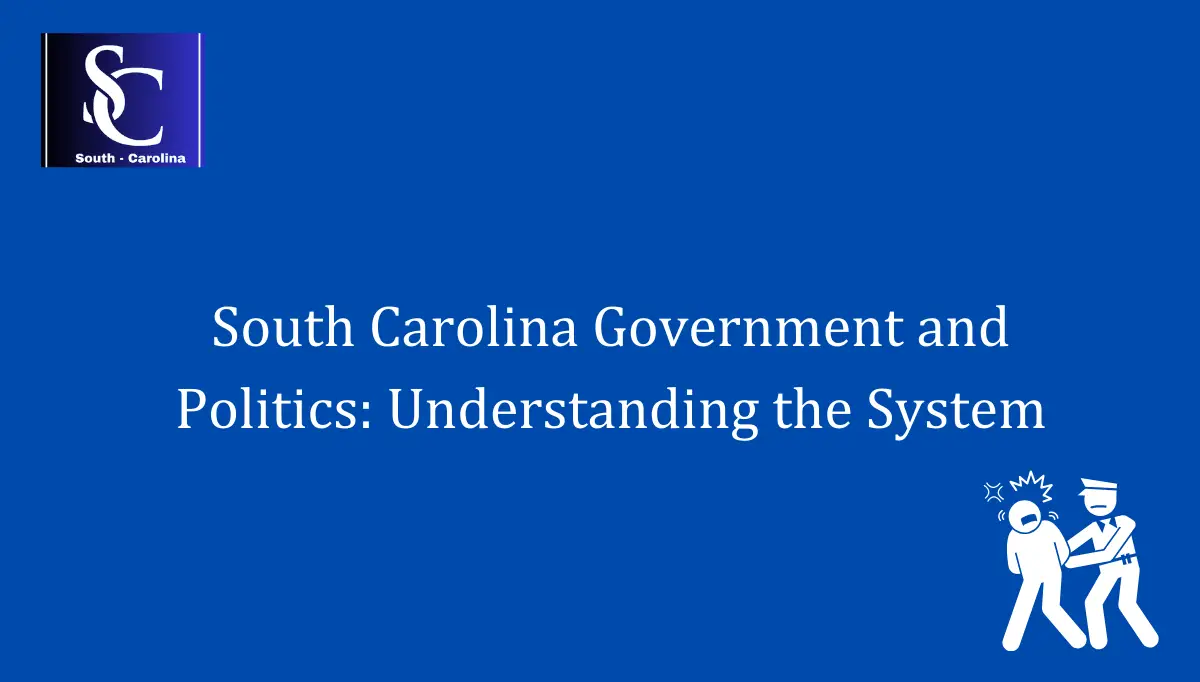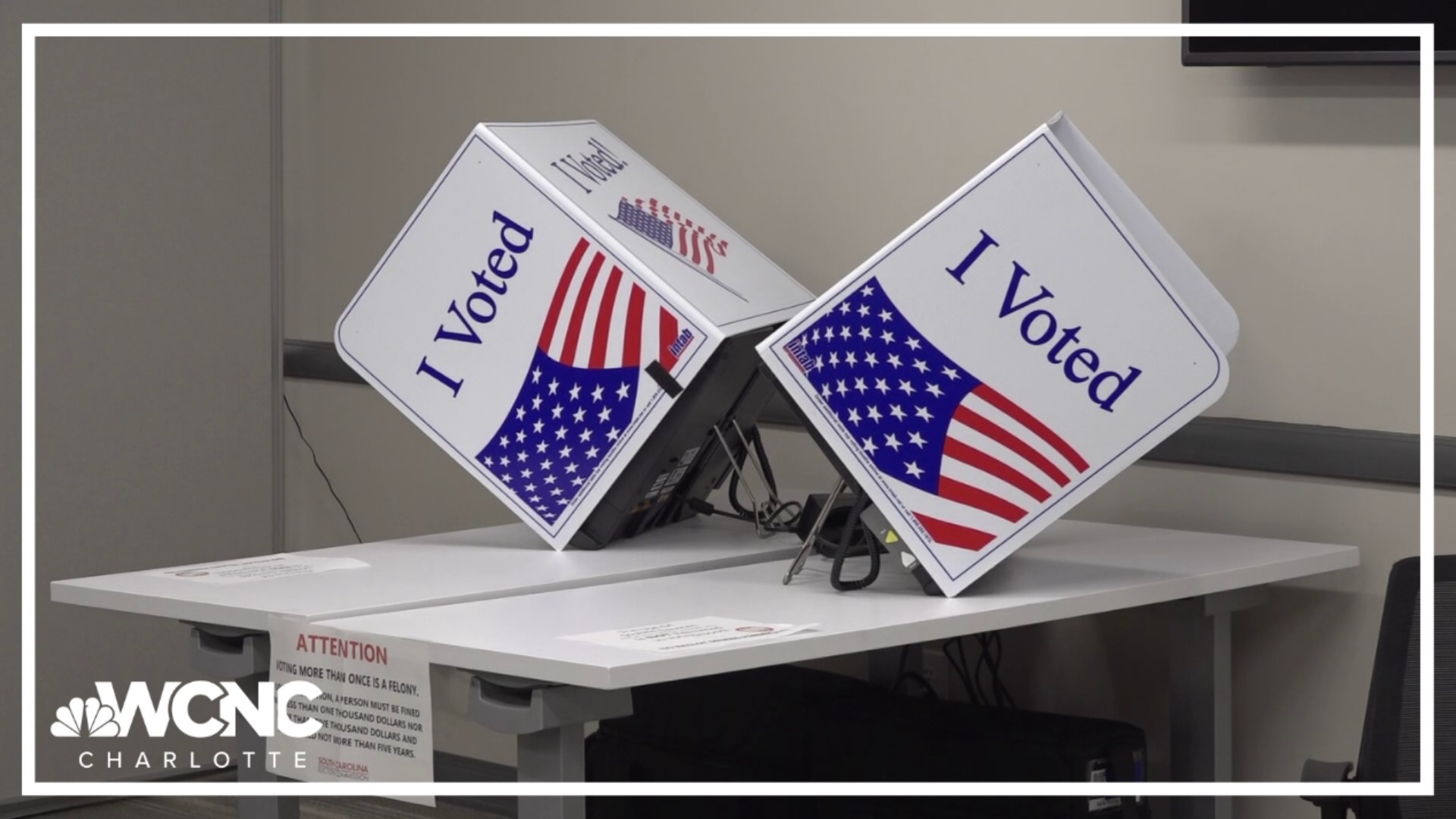Politics In South Carolina: A Comprehensive Guide
South Carolina politics have always been a fascinating subject for political enthusiasts, historians, and analysts alike. The state's political landscape is a blend of deep-rooted traditions, evolving demographics, and dynamic shifts in voter preferences. This article explores the intricacies of the political environment in South Carolina, offering insights into its history, current trends, and future prospects.
From the Civil War era to modern-day elections, South Carolina has played a pivotal role in shaping national politics. Its primary elections are often seen as a bellwether for the larger political trends across the United States. Understanding the political dynamics of this state is crucial for anyone interested in American politics.
This article delves into various aspects of South Carolina's political scene, including its historical context, key players, voting patterns, and the impact of demographic changes. Whether you're a student, researcher, or simply a curious reader, this guide will provide you with valuable insights into the political world of South Carolina.
- Love Island Cast Ages A Comprehensive Guide To Your Favorite Contestants
- Weather Forecast Lake George Ny Your Ultimate Guide To Planning The Perfect Trip
Table of Contents
- History of Politics in South Carolina
- Current Political Landscape
- Demographics and Their Influence on Politics
- Key Political Figures in South Carolina
- The Election Process in South Carolina
- Voter Turnout and Engagement
- Challenges Facing South Carolina Politics
- The Role of Media in Politics
- Future Trends in South Carolina Politics
- Conclusion
History of Politics in South Carolina
South Carolina's political history is deeply intertwined with its social and economic development. The state has been a stronghold for the Democratic Party for much of its history, particularly during the era of the "Solid South." However, the political landscape began to shift significantly in the latter half of the 20th century.
From Democratic Dominance to Republican Ascendancy
In the mid-20th century, South Carolina witnessed a gradual shift towards the Republican Party. This transformation was fueled by various factors, including the Civil Rights Movement, economic changes, and realignment of political ideologies. Today, South Carolina is predominantly Republican, with the party holding significant control over both state and federal offices.
Key events such as the Civil Rights Act of 1964 and Voting Rights Act of 1965 played a crucial role in reshaping the political environment. These legislative changes led to increased voter participation among African Americans, altering the political dynamics in the state.
- What Does Air Bnb Stand For A Comprehensive Guide To Understanding Airbnb
- The Biggest Hospital In The World A Comprehensive Overview
Current Political Landscape
As of 2023, South Carolina's political landscape is characterized by a strong Republican presence at both the state and federal levels. The GOP controls the governor's office, the state legislature, and the majority of congressional seats. However, the Democratic Party continues to have a presence, particularly in urban areas and among minority communities.
Key Issues in Contemporary Politics
- Economic development and job creation
- Healthcare access and affordability
- Education reform and funding
- Environmental policies and climate change
- Criminal justice reform
These issues dominate the political discourse in South Carolina, with parties often presenting contrasting visions for addressing them.
Demographics and Their Influence on Politics
Understanding the demographic makeup of South Carolina is essential for analyzing its political trends. The state's population is diverse, with significant African American, Hispanic, and Asian communities contributing to its cultural and political fabric.
Impact of Demographic Shifts
Recent demographic changes, such as urbanization and migration patterns, are influencing voter behavior and party affiliation. Younger voters and minority groups are increasingly leaning towards the Democratic Party, while rural areas remain staunchly Republican.
Data from the U.S. Census Bureau highlights the growing diversity of South Carolina's population, which is expected to have a profound impact on future elections.
Key Political Figures in South Carolina
South Carolina has produced several notable political figures who have shaped the state's political trajectory. These individuals have played significant roles in both state and national politics.
Biographies of Prominent Politicians
| Name | Position | Party Affiliation | Years in Office |
|---|---|---|---|
| Henry McMaster | Governor | Republican | 2017 - Present |
| Lindsey Graham | U.S. Senator | Republican | 2003 - Present |
| Joe Biden | President of the United States | Democratic | 2021 - Present |
The Election Process in South Carolina
The election process in South Carolina is governed by state laws and regulations designed to ensure transparency and fairness. From voter registration to the counting of ballots, each step is meticulously planned and executed.
Key Features of the Election System
- Open primaries for both parties
- Early voting and mail-in ballots
- Strict voter ID requirements
South Carolina's primary elections are particularly important, as they often set the tone for the national political scene. The state's "First in the South" status gives it significant influence in presidential elections.
Voter Turnout and Engagement
Voter turnout in South Carolina has been a topic of interest for political analysts and scholars. While the state has seen improvements in voter participation, disparities still exist among different demographic groups.
Factors Influencing Voter Turnout
Several factors contribute to voter turnout in South Carolina, including:
- Voter education and outreach programs
- Convenience of voting methods
- Salience of election issues
Efforts to increase voter engagement are ongoing, with both parties and nonpartisan organizations working to educate and mobilize the electorate.
Challenges Facing South Carolina Politics
Despite its vibrant political scene, South Carolina faces several challenges that could impact its political future. These challenges include political polarization, economic inequality, and social justice issues.
Addressing Political Polarization
Political polarization has become a significant issue in South Carolina, as in many other states. Bridging the divide between parties and fostering bipartisan cooperation is essential for addressing the state's pressing issues.
Efforts to promote dialogue and understanding between different political groups are underway, but much work remains to be done.
The Role of Media in Politics
The media plays a crucial role in shaping public opinion and influencing political outcomes in South Carolina. From traditional newspapers to digital platforms, media outlets provide a platform for political discourse and voter education.
Impact of Social Media
Social media has revolutionized the way political campaigns are conducted and how voters receive information. Platforms like Facebook, Twitter, and Instagram allow candidates to connect directly with voters and disseminate their messages more effectively.
However, the rise of misinformation and fake news poses challenges to the integrity of the political process, necessitating vigilance from both media outlets and consumers.
Future Trends in South Carolina Politics
Looking ahead, several trends are likely to shape the political landscape of South Carolina. These include continued demographic shifts, technological advancements, and evolving voter preferences.
Predictions for Upcoming Elections
As the state becomes more diverse and urbanized, the political balance may shift, potentially favoring the Democratic Party in certain regions. However, the Republican Party's strong grassroots network and organizational capabilities will continue to play a significant role in maintaining its influence.
Future elections in South Carolina will be closely watched, as they could serve as a bellwether for broader national trends.
Conclusion
South Carolina's political scene is a fascinating blend of tradition and transformation. From its historical roots to its current challenges, the state offers valuable insights into the complexities of American politics.
By understanding the factors influencing South Carolina's political landscape, readers can better appreciate the nuances of the state's political environment. We encourage you to engage in the political process by staying informed, participating in elections, and sharing your thoughts and opinions.
Feel free to leave a comment or share this article with others who may find it interesting. For more insights into South Carolina politics, explore our other articles and resources.

South Carolina Government and Politics

Early voting in South Carolina Everything you need to know

This week in SC Politics South Carolina to have more seniors than